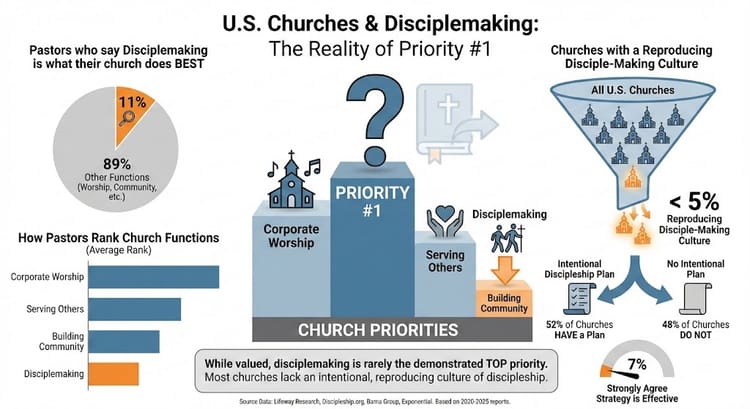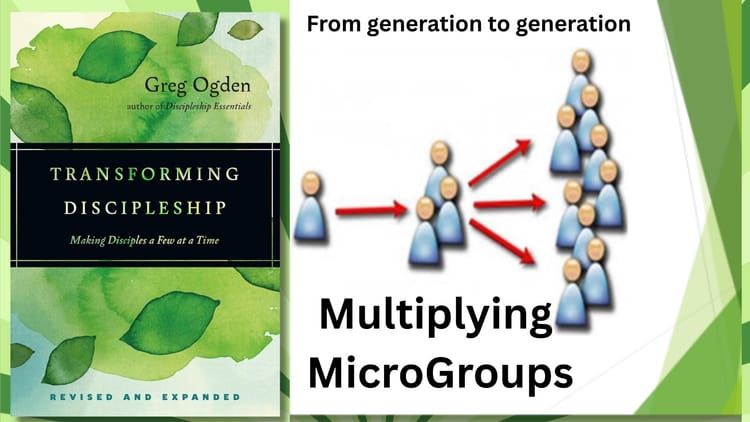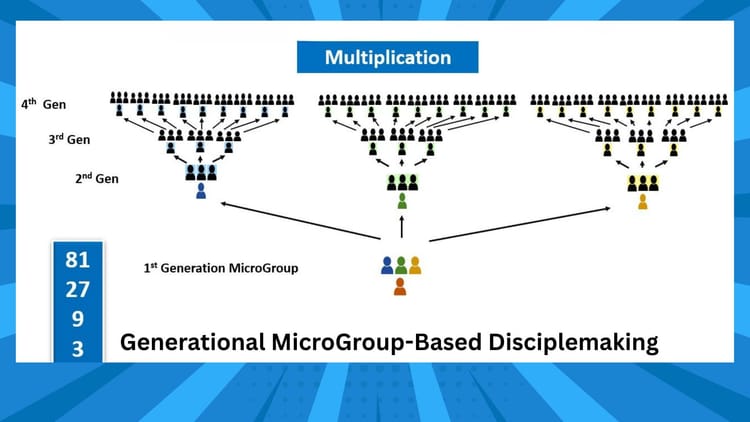Barcode Christianity

Since the first release of Discipleship Essentials, it has been quite gratifying to see that this tool has been used in such a variety of settings to assist the growth and multiplication of disciples of Jesus. The response to Discipleship Essentials, though, is simply an indicator of a broadly felt need.
Discipleship, or spiritual formation, appears to be a theme that is coming into focus as a vital necessity. Dietrich Bonhoeffer chided the church two generations ago because we were settling for what he called “cheap grace.” He said that we were practicing a brand of Christianity without a cross. This was easy believism. In many circles it would seem that all that is necessary is to embrace certain creedal tenets, such as justification by faith alone. The ability to affirm right doctrine signifies that we are “in the club.”
Dallas Willard has dubbed this as “bar code” Christianity. If we can be “rung up by the great scanner in the sky,” then eternal life is assured. With this understanding of the Christian life, what is the need to have a transformed life?
Christian or Disciple?
Michael Wilkins comes at the same issue from a different angle. In his survey of Christian groups, people will readily identify themselves as “Christians,” but be quite reluctant to call themselves “disciples.” Why might this be? Being a Christian is easy. The only thing required is that we acknowledge our need of a savior and to receive a gift that I cannot earn nor deserve. But if I identify myself as a disciple, then I am making a statement about the quality of my followership. Being a Christian is a statement about what Christ has done for me; being a disciple is a statement about what I am doing for Christ.
Our problem is that we have made peace with an unbiblical distinction.
Christian leaders have sent the message that it is alright to be a Christian without being a disciple of Christ. We expect that only a small percentage of Christians will “graduate” into the category of discipleship. We are reaping the results of the false notion that we have sown. It is broadly being acknowledged today by Christian leaders that we have done a miserable job of making disciples.
George Barna and George Gallup consistently tell us that their polling demonstrates that in terms of moral values and lifestyle choices there is little distinction between Christian and non-Christian. We are compromised at the core. We must reaffirm that biblically that there is no distinction between embracing God’s grace as a forgiven sinner and following Jesus as the primary shaping influence over our life.
Christian and Disciple are interchangeable words
Christian and disciple are interchangeable as we read in Acts, “The disciples were called Christians first at Antioch” (Acts 11:26). Therefore we must recalibrate where we set the bar of discipleship.
Discipleship Essentials was conceived for this very purpose. What are the basics that a follower of Jesus needs to practice as spiritual disciplines, comprehend as core biblical and theological truth, become in terms of character and lifestyle, and do to engage the church and the world?
This is the content, but what is the context? One of the key issues here is—how are disciples made? The church has settled for a program approach. Pastors stand up in front of their congregations announcing the latest enrichment opportunities while the same 20 percent show up. “You all come!” we shout.
They stay away in droves. Disciples, though, are made in relationships through personal, eyeball-to-eyeball invitation.
How different this is from our normal approach to the program church! When I begin a new discipleship group of three or four, I approach a potential participant only after having prayed for a sense of call to this person. I say to them something like, “I have been praying about who to ask to join with me and a couple of others on a journey together as we grow to be followers of Christ. The Lord has put you on my heart. Would you come along with me as we grow together over the next year to live more fully into what it means to be a disciple of Jesus Christ?”
Oh, how different it feels to be issued a personal call rather than a mass invitation! I said at the outset of my book Transforming Discipleship that transformation in these small, reproducible groups of three or four has been the “ah-ha!” of my ministry. Almost every week for the last 30 years, I have had at least one of these groups in my schedule and it is always the highlight of my life. To the see these same people then reproduce by discipling others so that there is growth of a multi-generational tree—wow! It doesn’t get any better than this!
To all those who have written to me with their stories of transformation, I have been blessed through them to know that the call to write this material has been met with hungry hearts who have taken the task of making disciples seriously is most fulfilling! Thank you from the bottom of my heart. I can only hope and pray that a century from now (if Christ has not returned) when church historians study the time in which we live that it will be called an age of discipleship.

Discipleship is not a program






Member discussion